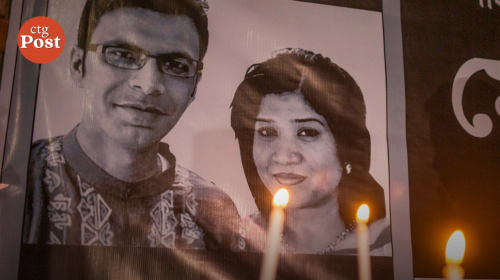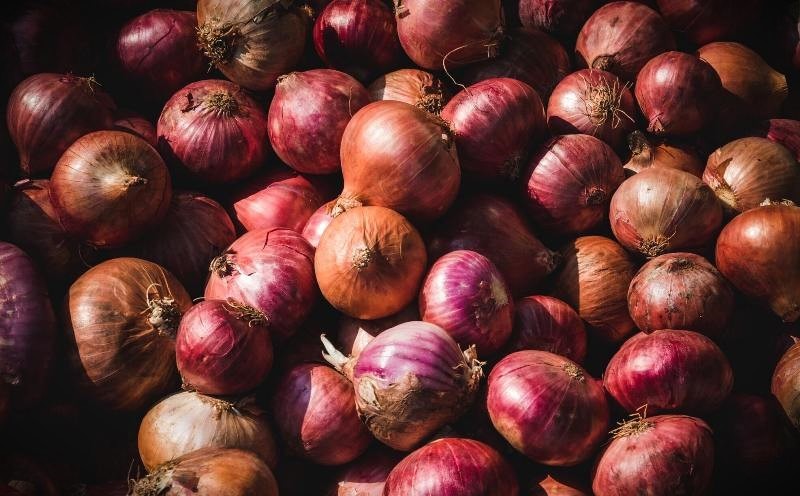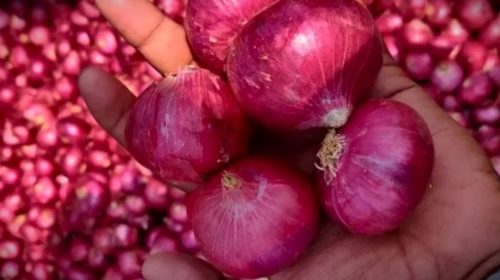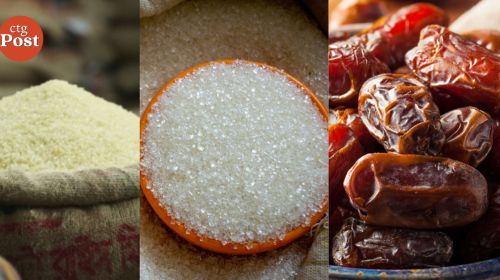The price of Murikata, an early variety of onion, jumped by Tk 20 per kg to Tk 105 per kg on Tuesday, compared to Tk 80 to 85 per kg two days ago in Dhaka.
Though the wholesaler said that onion prices have dropped slightly in the wholesale market, the effect is yet to be visible in the retail market.
On Tuesday, onion prices in the capital ranged from Tk100 to Tk105 depending on quality at Karwan Bazar, Mohakhali, Hatirpool, Malibagh, and Santinagar.
Khalilo Mia, owner of Hasan store at Shantinagar Bazar, told that good-quality onions have arrived in the market at a higher rate.
As the quality of this onion is slightly better, the price has also increased. However, there is no shortage of onion supply, he said.
The price of Murikata onions has also increased in the market price report released by the state marketing agency, Trading Corporation of Bangladesh (TCB). According to its report, new local Murikata onions were sold for Tk 90 to Tk 100 per kg in different markets in Dhaka.
A week ago, the price of this variety of onion was selling at Tk75 to 80 per kg; the imported onion price was Tk85 to Tk90 per kg. However, local and imported onion prices rose by 23 and 26 percent, respectively, during the week, according to TCB.
Onion prices have also increased in Sujanagar and Santhia upazilas of Pabna, one of the main production areas of Murikata onion. On Monday, in these upazilas, the price of onions was Tk71 to Tk78 per kg in the local wholesale markets. Onion prices have increased in the district compared to last week. Last week, the price of fresh onion there was Tk 60 to Tk 70 per kg.
The prices of other curry items like garlic and ginger have also increased by Tk10 per kg. On Tuesday, these items were selling for between Tk240 and Tk270 per kg, respectively, compared to Tk230 and Tk260 per kg last week.
The prices of all other vegetables have increased by Tk10 to 20 per kg this week compared to the last week.
However, bean, eggplant, and tomato were selling between Tk 60 to 100 based on quality, potato at Tk 50 to 60 per kg, bitter gourd at Tk 80 kg, balsam apple at Tk 100 to 120 kg, okra at Tk 80 to 100 per kg, cucurbitaceous at Tk 80 per kg, cucumber at Tk 60 to 70 kg, spone gourd at Tk 80 per kg, arum at 80 to 90 kg, radish and carrot at Tk 50 to 60 kg, green papaya at Tk 40 kg, French bean at Tk 100 to 110 kg, snake gourd at Tk 70 to 75 kg, pumpkin (medium size) at Tk 80 to 100 per piece, cauliflower and broccoli at Tk 50 to 70 piece, bottle gourd at Tk 80 to 100 piece, ash gourd at Tk 50 to 60 piece, coriander leaves at Tk 200 kg—Capsicum (red) at Tk 300 to Tk370 per kg base on size and quality.
The discomfort remains in the fish and meat market. Broiler chicken was selling at Tk200–220 per kg, and Sonaly chicken (a Pakistani variety) at Tk320–340 per kg. Beef, which was sold at Tk 650 in many places a couple of weeks ago, is now being sold at Tk 700 per kg everywhere.
Prices of eggs are increasing by Tk 5 to 7 in a dozen this week. Per dozen, brown eggs (hens) are at Tk 140 to 145, 5–10 taka less than white eggs. Duck eggs were selling for Tk 180 to 190 per dozen, while eggs of indigenous domestic rearing chicken were selling for Tk 210 per dozen.
The prices of fish are higher now compared to a few months ago. However, tilapia, pangas, and carp were selling for between Tk220 and 260 per kg. Among other fish, the price of medium-sized weighing 1.5 kg to 2 kg farming Rui, Katla, and Mrigel fish was selling at Tk 300 to Tk 400 per kg. Also, Pabda, Tengra, Koi, sheat (boal), chital, and Hilsa fish are not below Tk600 per kg.
The bigger fish, like coral, boal, and river pangas, were selling for between Tk700 and 1100 per kg at Karwan Bazar.
When asked about the price hike, the Director General of the Directorate of National Consumers Rights Protection (DNCRP), AHM Shafiquzzama, told that his office would drive against the unusual price hike of these essentials.
He also said that a few months ago, he warned different ministries and directorates to take steps to increase the supply of essentials, including onions and potatoes, to control prices.
Consumers Association of Bangladesh vice president SM Nazer Hossain said consumers in Bangladesh are having a hard time amid record prices of commodities due to higher inflation.
Farm eggs, broiler chicken, and cultured fish are key protein sources for millions of poor people in the country, he said.
Prices of all such products have increased, forcing a vast population to cut their protein and other nutrition-rich food intake, Nazer said.























